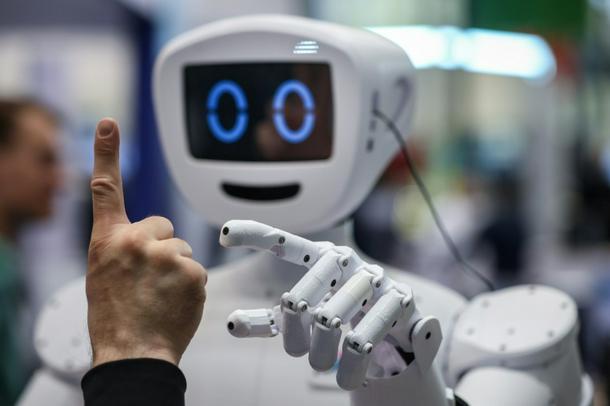
A man interacts with humanoid robot at the booth of the German Federal Ministry of Education and Research during the opening of the Hannover Messe
Hanover (Germany) (AFP) - Artificial intelligence is set to bring sweeping change to modern life, but at an industrial fair in Germany many companies wonder how they fit into the tech revolution.
“We use ChatGPT a bit,” shrugged one business representative, from a metals processor based in southern Germany, at this week’s Hannover Messe.
The expo grouping 4,000 firms promised visitors ways to “experience the future” and explore AI’s “practical applications in areas such as production, robotics and energy, all at their own pace”.
One eye-catching display – a gigantic Rolls-Royce aircraft engine whose production was optimised by AI from Microsoft and German company Siemens – drew many curious onlookers.
But on the sidelines, the small and medium enterprises (SMEs) that are the backbone of Germany’s economy – the so-called Mittelstand – often had less to say on the subject.
Andrea Raaf of Herz Aetztechnik, which uses lasers to make vehicle and electronics parts, said AI was not up to the job.
“The parts we manufacture are very individual, so we can’t really see the point of AI,” she told AFP.
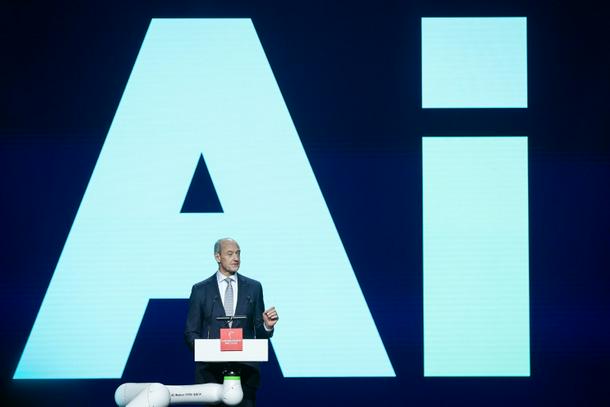
Siemens AG CEO Roland Busch at the Hannover Messe industrial trade fair for mechanical and electrical engineering and digital industries, on March 30, 2025
Others have been more engaged, including family-owned Koerner Electric, which said it has been using AI for the past three years.
Standing in front of custom-built circuit boards, its technical director Dennis Koerner said AI had helped with the manufacturing process and to analyse optical and electrical measurements.
“We have written a small AI with which we can generate programming much faster,” said Koerner.
“It was necessary to get faster and more stable results without needing several employees for the job.”
- Lagging behind -
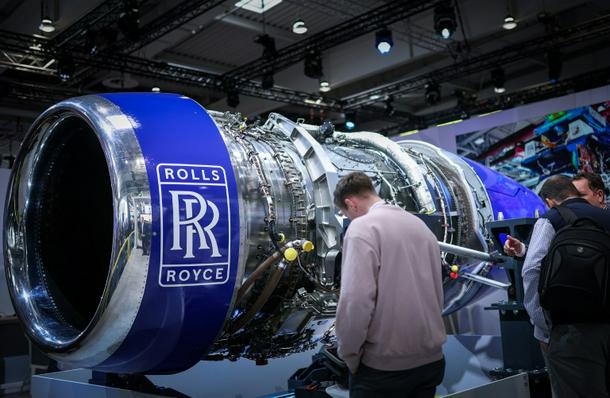
A Rolls Royce aircraft engine is on view during the opening of the Hannover Messe industrial trade fair
Once a byword for high technology, German industry knows that it is lagging behind US and Chinese competition when it comes to the digital technologies that will dominate the next century.
Many German firms remain unsure how to use the rapidly evolving technology in the kind of high-end engineering they specialise in.
“It’s important not to shy away from introducing AI,” said Agnes Heftberger, managing director of Microsoft Germany. “Otherwise Germany will find itself lagging behind in the face of international competition.”
Also featured at the fair were so-called “AI agents”, systems which autonomously perform tasks from writing code to assisting with conversations.
Microsoft offers systems to put machine data into simple language and identify maintenance needs in advance.
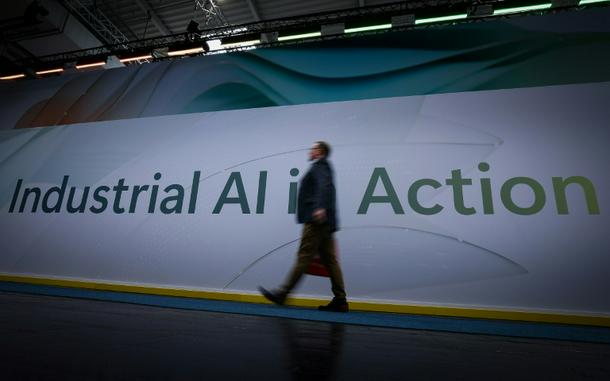
A visitor walks past a sign reading 'Industrial AI in Action' during the opening of the Hannover Messe
But Loke Olsen, an automation engineer at Confirm A/S, a Danish subcontractor to the pharmaceutical industry, was somewhat sceptical about AI’s potential errors and ability to correct itself.
“We have to be sure that AI works 100 percent because we have to comply with very strict health regulations,” he told AFP.
For some, cost is an issue. Koerner said that it seems like “we can hardly afford” some of the AI products being showcased at the fair.
- ‘Game changer’ -
Almost half of German industrial firms use AI for some business functions, a Microsoft survey found, but most are far more reluctant to use it to develop their products.
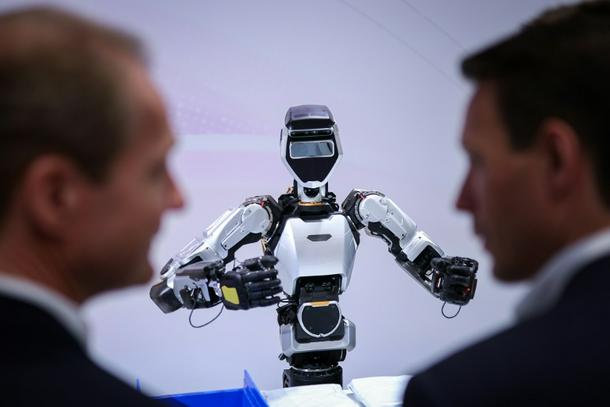
Visitors examine a humanoid robot at the booth of Microsoft and Sanctuary AI
Only seven percent of machine builders plan to adopt generative AI to help with product design, said a study by the machinists’ association VDMA.
“There are some initial attempts, but investment is still too low,” said Guido Reimann, VDMA’s deputy managing director of software and digitalisation.
The study found that GenAI, by optimising efficiency and boosting sales, could raise the sector’s annual profits by many billions of euros.
But although 52 percent of managers saw AI as a potential “game changer”, it said, “its use has so far often been limited to experimental or proof-of-concept projects”.
The top concerns listed were a lack of data quality, shortages of AI specialists and technical challenges.
Germany’s Fraunhofer research institute has been touring Germany since 2023, showing manufacturers concrete AI applications from carpentry to healthcare.
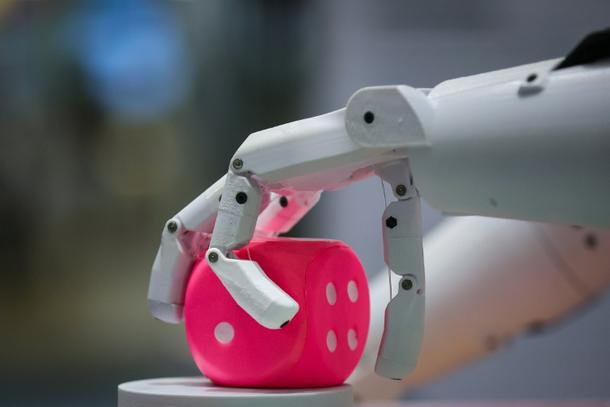
A humanoid robot grabs a cube at the booth of German Federal Ministry of Education and Research
“It often helps to network smaller companies with each other because AI always works with data,” said institute spokeswoman Juliane Segedi.
“The more data you have, the better an AI can become. And if you have a similar problem that needs to be solved, you can pool the data to come up with a solution that is good for everyone.”
Other challenges remain. Many people fear AI will one day steal their job.
An important step, Segedi said, will be convincing labour unions to not “see AI as a threat but as something that can contribute to their ideas”.